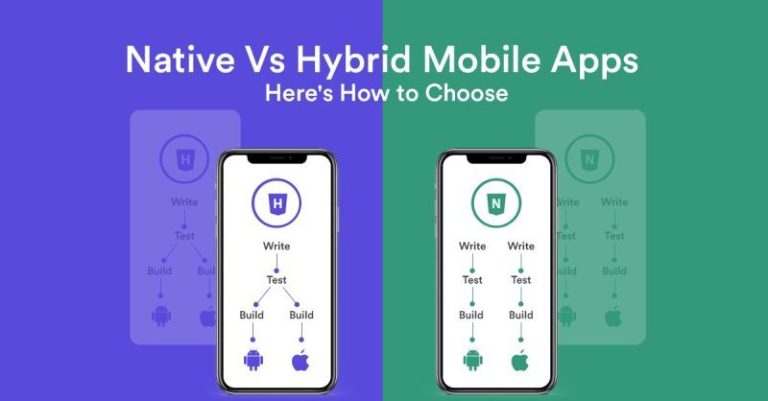
In recent years, mobile app development has become an essential part of businesses of all sizes, and companies are constantly looking for ways to create mobile applications that can improve their user experience and help them reach their customers more effectively. Two popular approaches to mobile app development are hybrid and native app development. In this article, we will discuss the key differences between these two approaches, their advantages and disadvantages, and which one to choose based on your project requirements.
Hybrid App Development:
Hybrid apps are built using web technologies like HTML, CSS, and JavaScript and run inside a native container on the mobile device. This means that developers can build a single codebase and deploy it across multiple platforms, including iOS, Android, and web. Hybrid apps are developed using frameworks like React Native, Ionic, and PhoneGap.
Advantages of Hybrid App Development:
- Cross-platform development: With hybrid app development, developers can build a single codebase and deploy it across multiple platforms, which reduces development time and cost.
- Easy maintenance: Hybrid apps can be updated quickly, as the codebase is the same across all platforms.
- Faster development: Hybrid apps are quicker to develop than native apps, as developers can use web technologies and deploy the app across multiple platforms.
Disadvantages of Hybrid App Development:
- Limited performance: Hybrid apps use a native container to run on the mobile device, which can limit the app’s performance compared to a native app.
- Limited access to device features: Hybrid apps may not have access to all device features and functionalities.
- User experience: Hybrid apps may not offer the same user experience as native apps, as they rely on web technologies.
Native App Development:
Native apps are developed using platform-specific programming languages like Swift for iOS and Java/Kotlin for Android. Native apps provide the best performance, user experience, and access to device features.
Advantages of Native App Development:
- Best performance: Native apps are faster and more efficient than hybrid apps as they are built using platform-specific programming languages.
- Access to device features: Native apps have access to all device features and functionalities, which enhances the app’s functionality and user experience.
- Better user experience: Native apps offer a better user experience as they are built specifically for the platform and follow platform-specific design guidelines.
Disadvantages of Native App Development:
- Longer development time: Native apps take longer to develop as they require platform-specific programming languages and codebase.
- Higher development cost: Native apps require more development resources, which can increase the development cost.
- Platform-specific development: Developers need to build separate apps for different platforms, which increases development time and cost.
Which one to choose?
The choice between hybrid and native app development depends on your project requirements, budget, and timeline. If you need to build an app that runs on multiple platforms, has a limited budget, and requires quick development, hybrid app development may be a good option. On the other hand, if you need an app that offers the best performance, user experience, and access to device features, and have a larger budget and longer development timeline, native app development may be the better choice.
Conclusion:
In conclusion, both hybrid and native app development have their advantages and disadvantages, and the choice between them depends on the project’s requirements. Developers should evaluate the project’s needs, budget, timeline, and user experience requirements before choosing between hybrid and native app development.








